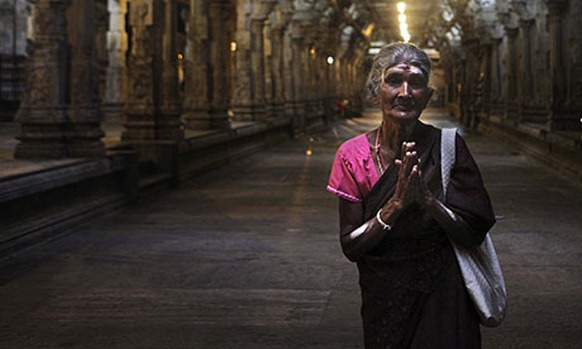 British-based Tamils have voted overwhelmingly in favour of the creation of an independent sovereign state in Sri Lanka, days after the man credited with crushing the Tamil Tigers’s 26-year rebellion won a second term as the island’s president.
British-based Tamils have voted overwhelmingly in favour of the creation of an independent sovereign state in Sri Lanka, days after the man credited with crushing the Tamil Tigers’s 26-year rebellion won a second term as the island’s president.
Nearly 65,000 members of the British Tamil diaspora turned out to vote in the weekend poll, organised by the Tamil National Council.
Voters were asked whether they endorsed the principles contained in a 1976 resolution, which called for an independent Tamil state in the north of Sri Lanka.
Polling took place in 65 booths across London and in major towns and cities throughout the UK. The final count revealed that 64,256 voters (99.33%) backed the resolution, 185 (0.29%) opposed it, and there were 251 (0.39%) spoilt papers.
Similar votes have already taken place among the Tamil disapora in France, Norway, Switzerland, Holland, Germany and Canada.
Suren Surendiran, a spokesman for the British Tamils Forum, said the vote underlined the Tamils’ commitment to independence.
"I think it is encouraging to see British Tamils showing their aspirations through the democratic process just as their compatriots around the world have," he said. "The same is not possible for their kith and kin back in Sri Lanka as the constitution prohibits people espousing separation."
A spokesman for the campaign group Act Now, which was set up to draw attention to the plight of the Tamils in Sri Lanka, said: "Clearly the British Tamil diaspora believe that independence is the only solution to the Sri Lankan conflict."
Last week, Mahinda Rajapaksa called for national unity after winning a controversial presidential election, the result of which was immediately contested by his rival.
Although Rajapaksa was declared the winner with 57.8% of the vote, General Sarath Fonseka, the former head of the army, who received 40%, said he would begin legal proceedings to have the result annulled. Fonseka also accused the government of wanting to kill him by removing his personal security detail. Last Friday, Fonseka’s lawyer said that police commandos had raided his client’s office and arrested 15 members of his staff.
The government, which denies trying to kill Fonseka, has in turn accused him of planning a coup and of involvement in an alleged plot to kill Rajapaksa. Last Wednesday, army troops surrounded the luxury hotel in the capital, Colombo, where Fonseka was staying. But the opposition leader later walked out after vowing to go to court to challenge the election.
The results of last week’s poll demonstrate the gulf between Sri Lanka’s Sinhalese majority and Tamil minority. Despite a resounding victory across much of the country, Rajapaksa lost in areas hit hard by war and where Tamils are in the majority.
With general elections coming later this year, Rajapaksa has indicated he will wait until the next parliament is in place to deal with Tamil demands for greater rights and self-rule in areas where they form a majority.
(For updates you can share with your friends, follow TNN on Facebook and Twitter )
